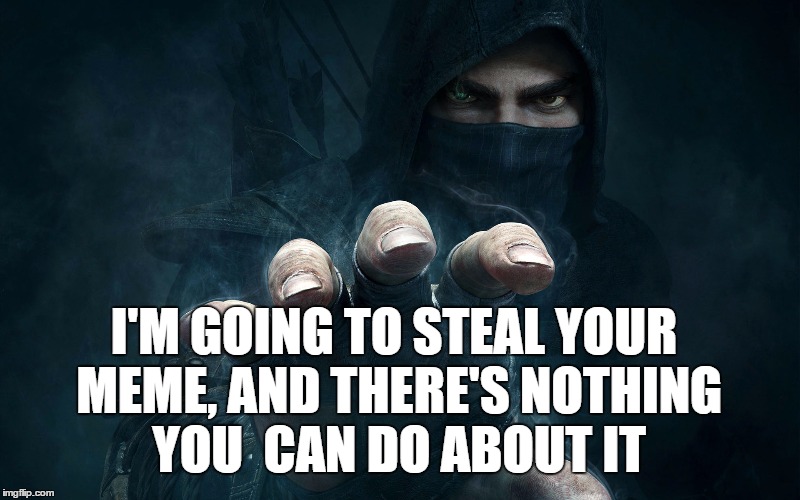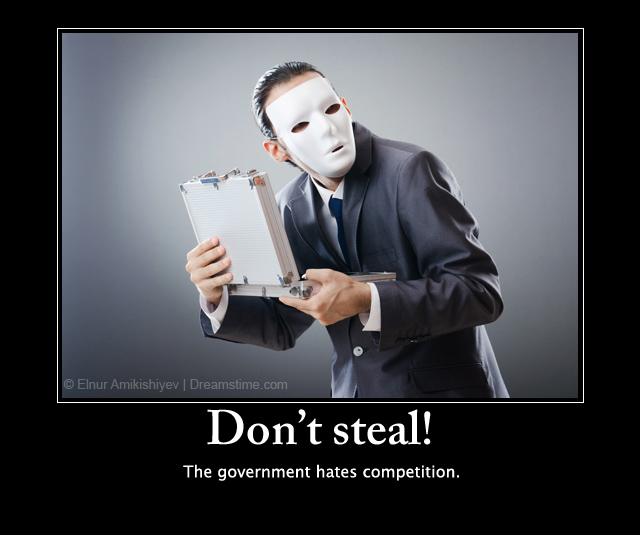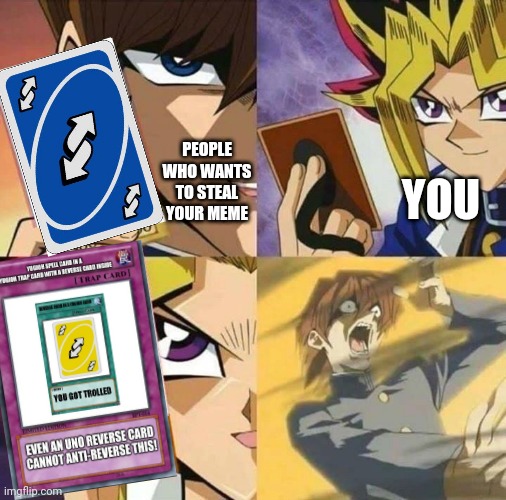Understanding The Phenomenon Of Steal Memes: A Comprehensive Guide
In the digital age, memes have become a language of their own, allowing people to communicate humor, critique, and social commentary in an accessible format. The concept of "steal memes" has emerged as both a phenomenon and a controversial topic within online communities. As we delve into the world of memes, we'll explore what it means to steal memes, the implications it has on creators and consumers, and how this practice shapes the very fabric of internet culture.
Stealing memes is not just about copying images or phrases; it raises questions about copyright, attribution, and the ethics of content sharing. In this article, we aim to dissect the various dimensions of stealing memes, from understanding their origins to the legal ramifications that often accompany this practice. By the end, readers will have a clearer understanding of the meme landscape and the responsibilities that come with it.
Whether you're a casual meme user or an avid creator, this comprehensive guide to steal memes will provide you with insights that are essential in navigating today's digital environment. So, let's embark on this journey through the meme world and uncover the truths behind stealing memes.
Table of Contents
1. What Are Memes?
Memes are cultural elements that spread virally, primarily through social media platforms. They often consist of images, videos, or text that convey a particular idea, joke, or sentiment. Here are some characteristics of memes:
- Humor: Most memes are designed to entertain and provoke laughter.
- Relatability: They often address common experiences or feelings.
- Adaptability: Memes can be easily altered and remixed by users, leading to new variations.
1.1 The Origins of Memes
The term "meme" was coined by Richard Dawkins in his 1976 book "The Selfish Gene." He described memes as units of cultural transmission, analogous to genes in biology. However, in the digital age, memes have taken on a life of their own, evolving into a unique form of expression.
2. The Evolution of Memes
Since their inception, memes have evolved dramatically. Early internet memes were simple images shared via forums and emails. Today, they proliferate across multiple platforms such as Instagram, Twitter, and TikTok. The evolution of memes can be categorized into several stages:
- Image Macros: Early memes often featured a photo with bold text overlay.
- GIFs and Videos: As technology improved, animated memes became popular.
- Viral Trends: Challenges and trends, like the Ice Bucket Challenge, have also been considered memes.
3. What Is Steal Memes?
Steal memes refer to the act of taking a meme from its original creator without proper attribution or permission. This practice can lead to various consequences, both for the original creators and the individuals who share these memes. Here are some key aspects of stealing memes:
3.1 The Mechanics of Stealing Memes
Stealing memes often involves:
- Downloading and reposting memes without crediting the original creator.
- Modifying memes slightly and presenting them as one's own.
- Sharing memes in a way that obscures their source.
4. Legal Aspects of Meme Stealing
The legal landscape surrounding memes is complex. While many memes are shared freely, copyright laws still apply. Here are some legal considerations regarding meme stealing:
- Copyright: Original meme creators may hold copyright to their work.
- Fair Use: Some memes may qualify as fair use, allowing limited reproduction without permission.
- DMCA Takedown: Creators can issue takedown notices for unauthorized use of their memes.
5. Ethical Considerations in Meme Sharing
Beyond legalities, ethical considerations play a significant role in meme culture. Here are some ethical dilemmas associated with stealing memes:
- Attribution: Should creators always be credited for their work?
- Impact on Creators: How does stealing memes affect the original creators' recognition and income?
- Respect for Creativity: Is it ethical to take someone else's work and claim it as your own?
6. The Impact on Creators
Stealing memes can have significant implications for original creators. Here are some potential impacts:
- Loss of Recognition: Creators may not receive credit for their work.
- Financial Implications: If creators monetize their content, stealing memes can affect their income.
- Emotional Toll: Original creators may feel disheartened when their work is taken without acknowledgment.
Social media plays a pivotal role in the proliferation of memes. Platforms facilitate the rapid sharing and remixing of content. Key aspects include:
- Virality: Memes can go viral within hours, reaching millions of users.
- Community Building: Memes often foster communities around shared humor or interests.
- Content Moderation: Platforms are increasingly implementing rules regarding copyright and content sharing.
8. Conclusion
In conclusion, the phenomenon of steal memes is a multifaceted issue that intersects with legal, ethical, and cultural dimensions. As consumers of memes, it is crucial to understand the implications of sharing and stealing content. By respecting original creators and giving credit where it's due, we can foster a more respectful and vibrant meme culture.
We encourage you to share your thoughts in the comments below or explore more articles on our site to deepen your understanding of internet culture.
Thank you for joining us on this journey through the world of memes. We hope you found this article informative and engaging, and we invite you to return for more insights in the future.
Article Recommendations



ncG1vNJzZmilqZu8rbXAZ5qopV%2BWtLOxwKylnq%2Bjany0wMSao2allaKytHrHraSl